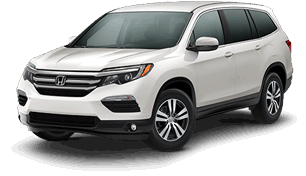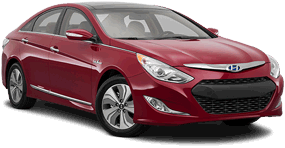Stimulus money provided by the Federal Government during the current COVID-19 (Coronavirus) crisis might just be on its way to your home in the next two to three weeks (if you've filed your tax returns for 2019, that is). Depending on your income and the number of children in your family, the check could be significant.

One question that emerges in the minds of some Americans is whether or not they should use the money to purchase a new vehicle, or should they reserve the money for other needs. For some, a reliable car is essential and also provides peace of mind in an emergency. We take a closer look.
How Much Money Will You Get?

The federal government says checks should arrive within the next three weeks, some faster with direct deposit (for those who provided bank routing info in their tax returns). Otherwise, checks will show up in the mail based on your filing address. In terms of actual amounts (what everyone wants to know), the math is pretty straightforward, and the federal government has laid down some rules about who gets what. Here's the simplest way for us to break it down for you:
- If you make less than $75,00/year (adjusted gross income) as an individual you will get a $1,200 check.
- If you make $150,000 (adjusted gross income) as a married couple, you will receive a $2,400 check.
- If you have a child (or children) under the age of 16, you qualify for $500 per child.
- If you make more than the aforementioned amounts, you will get a reduced amount, but there's a cutoff that will disqualify you from receiving any stimulus funds. Use this calculator to find out where you fall.
- You also have to have filed your tax returns for the 2019 tax year in order to qualify.
- Stimulus money is given tax-free, which means get to use the whole amount and don't have to pay any of it back.
Do You Have Credit Card Debt?

Any financial advisor will tell you to pay off high-interest items first, like credit card debt. If you're carrying a few thousand dollars in debt at 19% interest, $1,200 or $2,400 (or more if you have kids) from the COVID-19 crisis stimulus money can really help you shrink the size of that debt.
You should factor this in before considering buying a car with the stimulus money. If the stimulus money can totally eliminate your credit card debt, all the more reason to do so instead of adding more debt by purchasing a new car. The lure to get something new might overshadow any fiscal wisdom, so assess your financial situation carefully.
Are You Worried About Your Job?

Of course, if you're one of the millions of Americans who has lost your job due to the fallout from the COVID-19 crisis, we highly recommend that you stash away your stimulus money in your savings or emergency fund or put it towards more immediate needs like food, rent, etc. before you ever consider buying a new car.
If you're also worried about your job security, think very conservatively about how you should use the money (or not use it at all). Although it's seriously tempting to use "free money", it's also meant to help you out in a time of crisis. Squandering it on stuff you "want" versus "need" might just be the dumbest way to use the money.
When Using Stimulus Money to Buy a Car Makes Sense

Now that you've carefully evaluated your financial situation and checked all the boxes. Debt paid, job secure, etc., you can take a serious look at using your stimulus check toward a new car. Let's say you have three kids under sixteen, and you and your spouse make less than $150,000 together. This means you'll get a rather hefty $3,900 stimulus check, tax-free. While that seems like a lot, if you just buy a bunch of stuff you want (Starbucks coffee, new TV, new clothes, delivery meals), that money will disappear quickly.
But if you put it towards a down payment on a new car, it will really help keep your monthly payments down. You can even use that money toward leasing a car. If your monthly lease is $300 or less, that money will last a full year or more, which will really make a difference. Plus, if you keep those lease payments low, you can probably afford the car after the stimulus money runs out. You can also put the money towards your existing car loan payments, which should help a ton. Couple that with refinancing your current car loan (rates are very good right now), and you could save even more.
- Deposit the entire check into your savings account, so you're not tempted to spend it right away.
- Look at purchasing a new affordable car with lower payments if your current car needs to be replaced soon.
- If your vehicle is in good condition, but you still have payments due, consider using the money to make payments (or as a lump sum payment so you're not tempted to use the money for other things).
- Consider a lease program that's affordable for you and use the stimulus money to pay the monthly lease. Find one that you can still afford to pay for after the stimulus money runs out.


